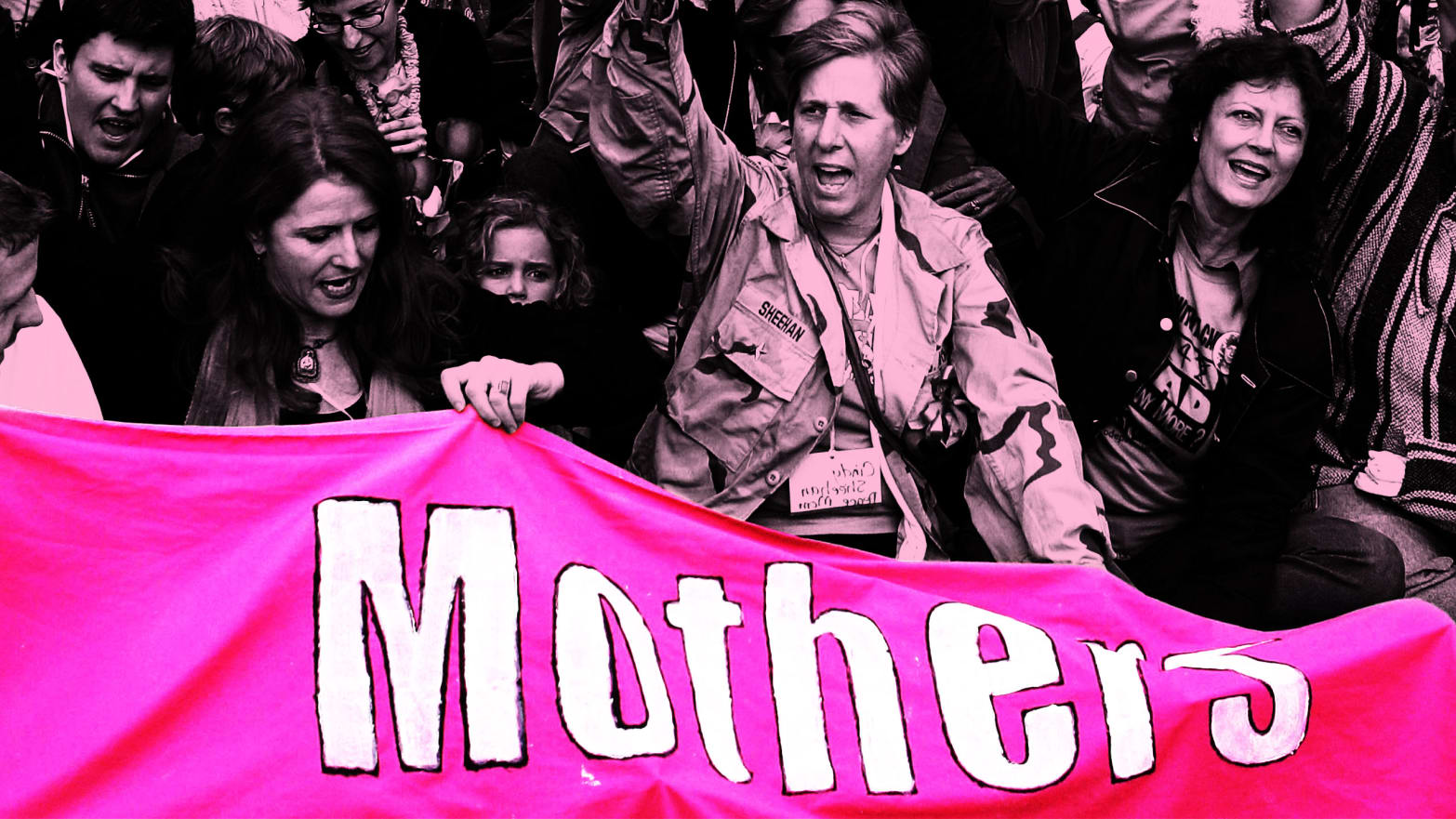Mother’s Day was originally a subversive holiday. It didn’t resemble today’s spring Sunday of hearts and flowers, forced sentiment, and pink-ribboned gifts, but was invented by political activists, suffragists, and pacifists to celebrate mothers as agents of change, and to encourage moms to mount the barricades and claim power.
Julia Ward Howe, despite the gory language of her “Battle Hymn of the Republic” lyrics, was a committed pacifist—as well as an active suffragist—and in 1870 she penned “A Mother’s Day Proclamation” calling on mothers to unite to put an end to war. Howe gave instructions:
“Arise then, Women of this day... Say firmly: Our husbands shall not come to us, reeking with carnage, for caresses and applause. / Our sons shall not be taken from us to unlearn all that we have been able to teach them of charity, mercy and patience. / From the voice of a devastated Earth a voice goes up with Our own. It says: ‘Disarm Disarm!’”
Neatly pairing her two favorite causes, Howe insisted that the only way to convince men in power that war was not an acceptable foreign policy was to arm women with the vote.
Around the same time, Ann Reeves Jarvis, a community activist in West Virginia, was organizing “Mothers’ Day Work Clubs” to educate women about sanitation and public health. After Jarvis’ death in 1905, her daughter launched a drive to honor her mother’s work with a Mother’s Day holiday in May, the month of Jarvis’ birthday. The idea was taken up by churches, then by state governments, and finally by a proclamation signed by President Woodrow Wilson in 1914, making the second Sunday in May “Mother’s Day.”
Suffragists adopted this idea of a day devoted to mother’s work—not just in the home but in the community and the life of the nation—by encouraging clergymen (they were almost all men) to devote their May Sunday sermons to supporting suffrage from the pulpit. The Suffs couched their appeal for the vote as way to bring “mother wisdom”—mothers’ supposed superior spiritual and moral gifts—into the realm of politics. Mothers could apply their domestic skills and efficiency to the cleansing of dirty politics in what the suffragists called, with no irony, Civic Housekeeping.
Suffragists used the image of Mother—wise, devoted, nurturing—to sell their still-controversial suffrage concept to the American public, and even became masters of the mother-guilt-trip: “Give the Vote to Ma” became a popular suffrage parade banner, for what son dare deny his saintly mother the vote?
But it was the Anti-Suffragists who most ably weaponized the image of Mother, turning her—and Mother’s Day—into a highly effective rebuke of the political and social emancipation promised by enfranchisement.
In the skilled publicity hands of the “Antis”—many of whom were women themselves—Mother became both a victim and a perpetrator, endangering the security of the American family by being forced—or being willing—to venture outside the home to vote. There were many perils: In grasping for the ballot, Mother would tear off her apron and abandon her family, the Antis warned, smashing the traditional gender roles governing home and hearth.
The foundations of civilization would shake: Men would have to care for crying children. Do dishes. Mend their own socks. “Who will wear the pants when women vote?” asked one anti-suffrage broadside. Arguments over candidates would rock the dinner table, and divorce rates would zoom. Juvenile delinquency would climb as mothers took greater interest in politics than their offspring.
Mother would be defiled by touching politics in casting a vote. Advocating for suffrage would tear mom away from the cradle and thrust her—now turned into a crazed harridan—onto a sidewalk soapbox. To top it all off: Allowing women to vote would violate God’s plan for humankind; Eve was created to be subservient to Adam for good reason. That’s the message the Antis asked clergy to deliver on Mother’s Day.
Suffragists scoffed at the dire predictions of the nation’s moral collapse should women possess the vote, deriding the Antis as the “Home, Heaven, and Mother crowd.” But in the struggle for hearts and minds, they understood how potent a weapon was the idea of Mom, especially when turned against their cause.
In the end, the Suffs had the last maternal laugh. It was 1920, and the 19th Amendment—guaranteeing woman suffrage—needed to pass in one more state in order to become the law of the land. The lower house of the Tennessee legislature called the ratification vote, only to find itself deadlocked. Until a young delegate, a confirmed Anti, received a letter from his mother and changed his mind, casting the deciding vote to approve the Amendment. “I knew a mother’s advice is always safest for a boy to follow,” he explained, “and my mother wanted me to vote for ratification.”
That’s the true spirit of Mother’s Day.
